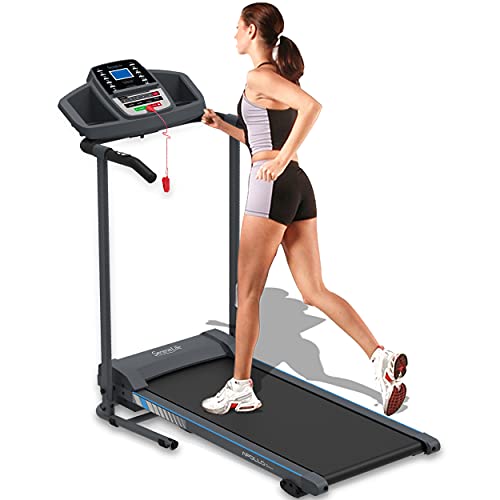Five Things You Didn't Know About Walking Machine
The Rise of Manual Walking Machines: A Comprehensive Guide
In an age marked by the increasing need for fitness and health care, manual walking makers have actually seen a renewal in appeal. These machines provide an available and affordable way to incorporate exercise into one's everyday routine. This blog site post explores the benefits, features, contrasts, and considerations surrounding manual walking makers, changing a frequently ignored piece of physical fitness devices into a cornerstone of health.
What is a Manual Walking Machine?
A manual walking machine, typically known as a manual treadmill, is a fitness device designed to mimic walking without dependence on electrical power. Users move the belt forward through their own movement, making it an unique mix of cardio and strength exercise. Perfect for users of all physical fitness levels, this machine has gained traction among those seeking a straightforward way to exercise.
Secret Features of Manual Walking Machines
Function
Description
Power Source
Operates without electricity— ideal for homes without power outlets.
Belt System
The belt moves only when the user walks, offering a special workout.
Adjustable Speed
Users can pick their rate, helping with a customized workout.
Portability
Usually lighter and easier to store than powered treadmills.
Durability
Less moving parts lead to minimized maintenance requirements.
Price
Normally more affordable compared to motorized treadmills.
Benefits of Using a Manual Walking Machine
Cost-Efficiency: Manual walking makers tend to be more affordable than their motorized equivalents. This quality makes them a great financial investment for those wanting to start their physical fitness journey without breaking the bank.
Reliable Cardio Workout: Because users are accountable for moving the belt, manual makers can use a more intense workout. The harder you press, the higher strength you achieve.
Muscle Engagement: Users not just deal with their cardiovascular physical fitness however also engage core muscles, causing enhanced stability and strength.
Low Impact: Unlike operating on hard surfaces, a manual walking machine minimizes joint pressure, making it suitable for individuals recuperating from injuries or those with joint concerns.
Simplicity and Portability: The absence of complex settings and the compact design make it simple to incorporate a manual walking machine into any space.
Comparing Manual Walking Machines to Motorized Treadmills
Specification
Manual Walking Machines
Motorized Treadmills
Source of power
Non-electric
Electric (needs power)
Speed Control
User-defined
Predefined settings available
Expense
Generally lower
Usually higher
Portability
More portable
Much heavier, less portable
Maintenance
Low upkeep
Regular upkeep may be needed
Workout Variety
Limited (walking just)
Wide variety (incline, programs)
How to Incorporate a Manual Walking Machine into Your Fitness Routine
In order to make the most of the advantages of a manual walking machine, one must tactically plan their exercise sessions. Here's an easy guide on how to do so.
Step-by-Step Incorporation
Warm-Up (5-10 minutes): Start with a gentle walk at a low rate to prepare your body for an exercise.
Period Training (15-20 minutes):
- Alternate in between a brisk walk and a slower rate. For instance, walk at a high intensity for 1 minute, followed by 2 minutes of moderate walking. Repeat for 15-20 minutes.
Steady-State Jogging (10-20 minutes): Once comfy, include periods of jogging to increase cardiovascular fitness.
Cool Down (5-10 minutes): Gradually decrease your speed to bring your heart rate back to a normal level.
Post-Workout Stretching: Engage in extending exercises to enhance versatility and avoid soreness.
Additional Tips for Effective Workouts
- View Your Form: Keep your posture upright and engage your core while walking.
- Use Resistance Bands: To add more strength-training elements, attach resistance bands while walking.
- Stay Hydrated: Ensure adequate water intake previously, throughout, and after workouts to aid healing.
FAQs About Manual Walking Machines
1. Are manual walking devices suitable for everyone?
Yes, manual walking makers accommodate diverse physical fitness levels, making them appropriate for novices, intermediates, and even advanced users. However, people with severe injuries or health conditions must speak with a doctor before starting any brand-new workout program.
2. How typically should I utilize a manual walking machine?
For optimum outcomes, go for at least 150 minutes of moderate aerobic activity weekly, which can be quickly accomplished with regular sessions on a manual walking machine.
3. Can I reduce weight utilizing a manual walking machine?
Definitely! Coupled with a well balanced diet, constant usage of a manual walking machine can contribute to weight-loss through increased calorie expenditure.
4. What is the distinction between a manual walking machine and an elliptical fitness instructor?
While both devices provide a cardiovascular workout, a manual walking machine focuses mostly on walking. An elliptical can supply both upper and lower body workout with less effect on the joints.
5. Are there any safety concerns related to using a manual walking machine?
Like any fitness equipment, appropriate use is vital. Users must maintain their balance and avoid diversions while walking to avoid accidents.
Manual walking devices provide an exceptional option to conventional electric treadmills, meeting the diverse needs of physical fitness enthusiasts worldwide. Home Treadmills , mobility, and effectiveness make them a feasible choice for anybody seeking a simple yet requiring method to preserve fitness. By comprehending the advantages, distinctions from motorized treadmills, and how to best include them into exercises, individuals are much better equipped to make an educated choice about their health and fitness journeys.
Whether you're brand-new to fitness or looking for an effective way to stay active, manual walking makers supply a path to a healthier lifestyle. As more individuals seek sustainable physical fitness services, these makers are poised to stay popular fixtures in homes and fitness centers alike.
